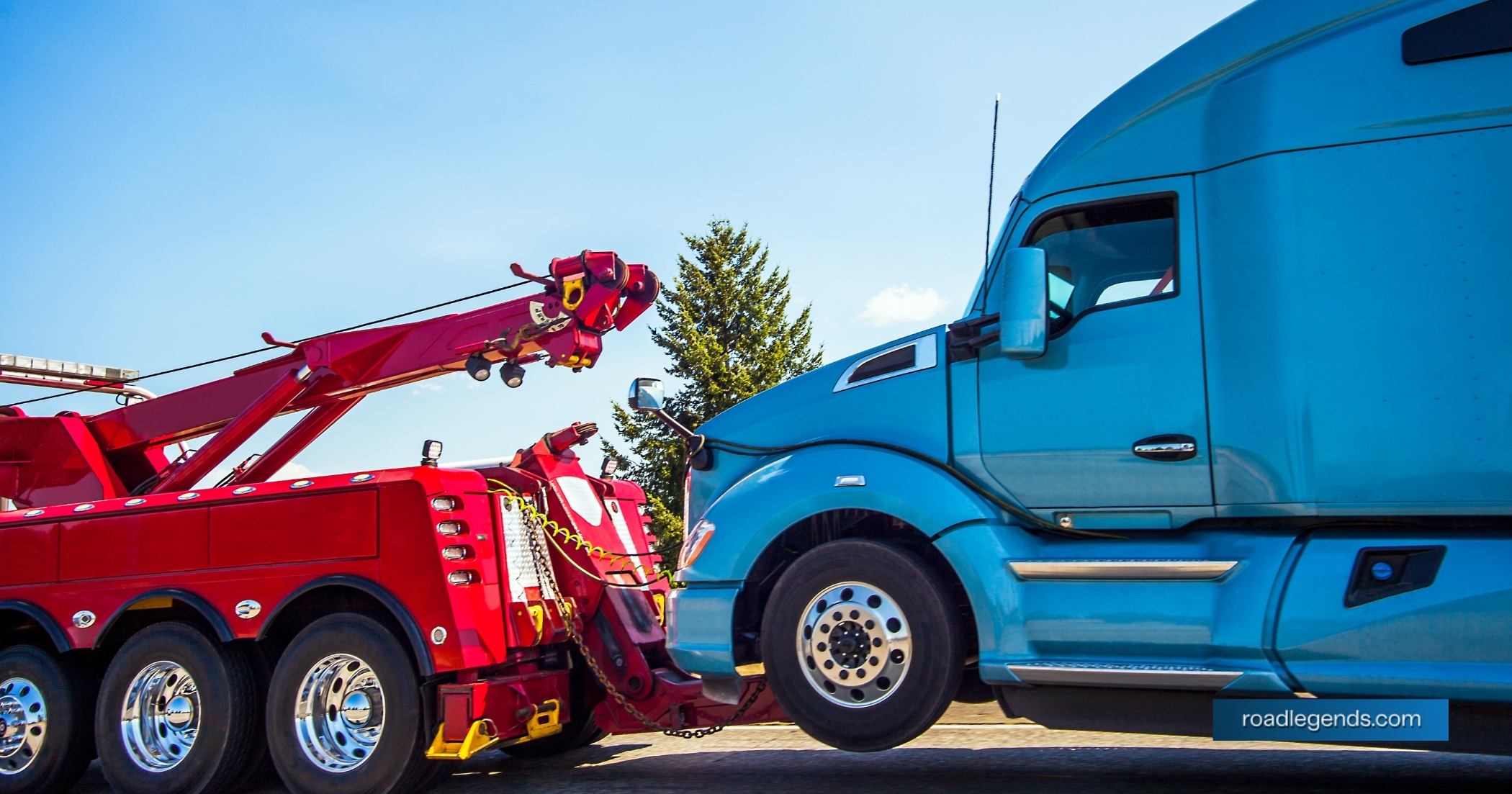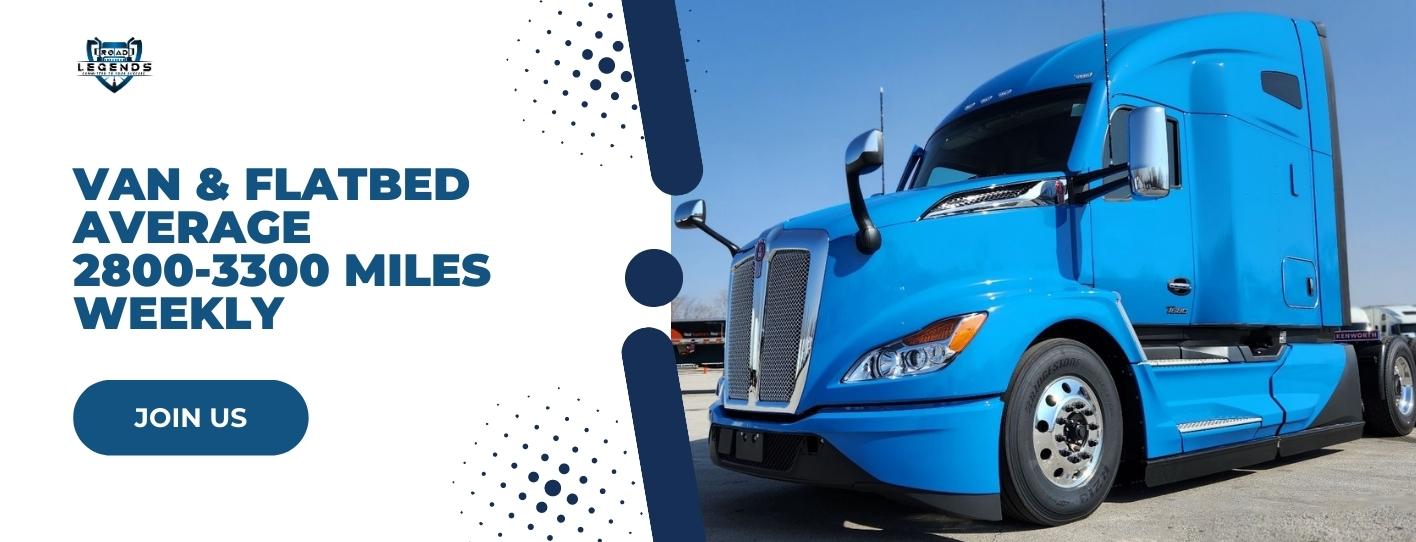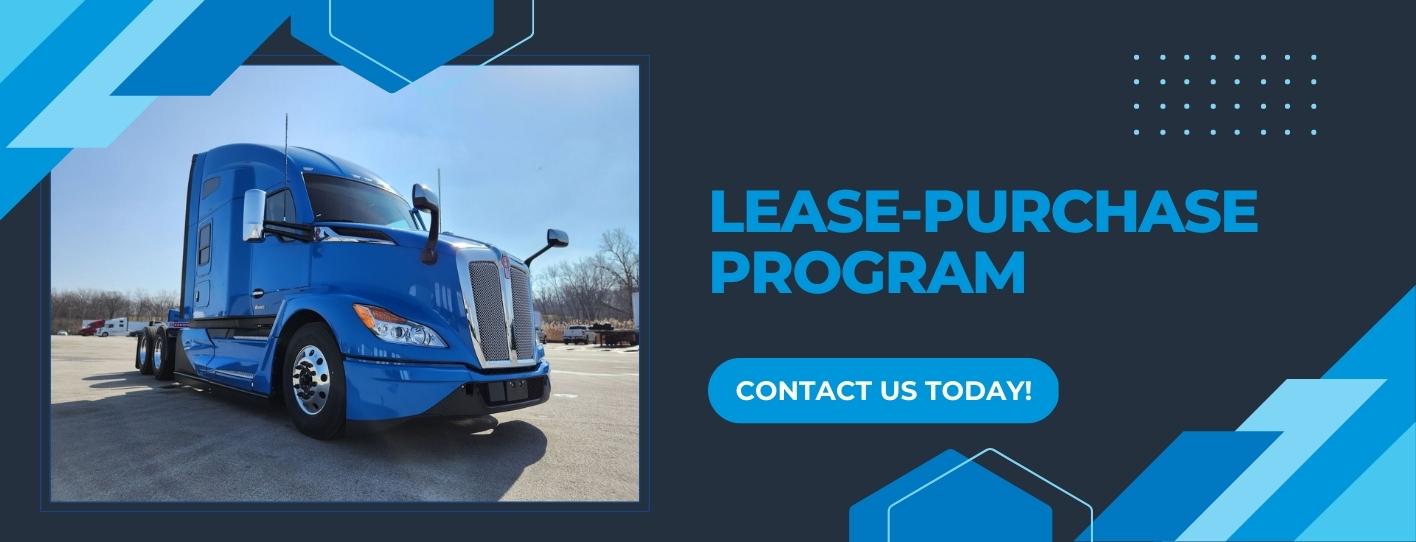
Guide to Trucking Insurance With Top 5 Companies Providing It
Trucking insurance is like a safety shield for truck-related businesses and independent truck drivers.
In this guide, we'll explain everything business owners and contractors should understand when they're looking to get trucking insurance.
We'll talk about how this insurance works, what it might cost, the different kinds you can choose from, what businesses need it, how to ask for a price estimate, and who the best insurance companies are. So, by the end, you'll have a good handle on trucking insurance.
What is a trucking insurance?
Trucking insurance is like a special kind of insurance for trucks used by trucking businesses, companies with trucks, or independent truck drivers. This insurance aims to protect you from having to pay a lot of money if there's an accident or if something bad happens to your truck or the things you're carrying.
Regular business auto insurance covers many different vehicles used for work, but trucking insurance is just for big trucks, like semi-trucks. These trucks are usually used for construction, moving goods, or farming. The kind of cargo or stuff you're hauling and the size and type of your truck affect your insurance.
How does commercial truck insurance work?
Trucking insurance is a part of business auto insurance. But it's only for people who drive trucks for work. So, it only covers specific trucks when the people listed on the insurance drive them for work.
The people listed on the insurance also affect how much you pay. Your driving history is a big deal, and it helps decide how much your monthly payments are.
There are a few types of people and businesses that usually buy trucking insurance:
- Motor carriers: These are trucking companies that own a bunch of trucks. They need to make sure all their trucks are insured.
- Owner-operators: These folks own and run their trucking businesses. They often own their trucks, too. But sometimes, an "owner" might be renting a truck from a big trucking company that owns it. In this case, the owner usually has insurance for the truck.
- Private carriers: These people use trucks to carry stuff for their boss. If you often drive your truck for work, your boss might ask you to get your own insurance. Or they might help you pay for it.
All these businesses can buy trucking insurance. It doesn't matter if you have just one truck or a whole fleet. When you're getting insurance, you need to figure out:
- Coverage: This says what kinds of problems the insurance will help with.
- Monthly payment: This is how much you pay monthly for insurance.
- Deductible: This is how much money you must pay if something wrong happens before the insurance kicks in.
- Policy limit: This is the most money the insurance will pay for things covered by the policy.
You pay the insurance company every month for the coverage you pick. If something bad happens, like a crash, you have to tell the insurance company about it within a few days. If the insurance covers the problem, you'll have to pay for everything up to the deductible. The insurance company will pay for everything else up to the policy limit.
Different insurance companies handle things after a crash in different ways. Some have certain repair shops you have to use. They pay the shop and bill you for your part based on the deductible. Others might want you to get price estimates from different repair shops, or they might send someone to estimate the cost. Some insurers work like a reimbursement. That means you pay for everything upfront and get paid back for costs over the deductible.
The best insurance for you depends on how likely you are to have a problem, how much coverage you need, and how much money your business has.
What is the average commercial truck insurance cost?
The cost of commercial truck insurance can be quite different. It depends on several things, like what you're carrying, where you're going, the type of truck, where you're based, and how you've been driving.
If your trucking business is carrying stuff, the kind of stuff matters a lot. Some things are riskier to transport, so insurance for them costs more. If you carry dangerous things, that can also increase your insurance cost.
The kind of truck you're insuring is another big deal. For example, a big semi-truck can cause more damage than a tow truck, so it costs more to insure. And if your truck is brand new, it's usually more expensive to insure because replacing or fixing it after an accident costs a lot.
Where you're driving matters, too. Trucks going on long trips face more risks. Longer hours on the road and unfamiliar routes can lead to more accidents. So, if you're driving long distances, you'll pay more for insurance. And different states have different costs because of things like weather and traffic.
Your driving record is also essential. Just like regular car insurance, your insurance costs more if you have a history of speeding or accidents. But if your driving record is clean, you can save a lot every month, especially if you have many trucks.
What factors affect the cost of commercial trucking insurance?
Several factors can impact how much you pay for your commercial truck insurance, especially if you're new to the driver's seat. Here are the key points:
Coverage amount
The extent of coverage you opt for directly impacts monthly premiums. Often, trucking companies specify minimum coverage requirements that drivers must meet. Adjusting your coverage levels will accordingly influence the cost of your insurance policy.
Vehicle type
The type of truck you operate plays a substantial role in determining insurance expenses. Heavier vehicles, like semi-trucks, often incur more significant insurance costs. This is mainly due to the increased expenses of repairing or replacing such vehicles after accidents.
Driving history
Your track record as a driver, both in non-commercial and commercial contexts, significantly affects insurance costs. New drivers without an established history of safe commercial driving typically pay higher premiums than experienced counterparts with similar coverage. Additionally, past accidents, speeding tickets, and other traffic violations on your regular driver's license can lead to rate hikes.
Storage
Where you park your truck during off-duty hours also impacts insurance costs. If you leave your vehicle in an unsecured location, the risk of theft increases, potentially leading to higher expenses for physical damage insurance.
Location
Insurance rates can vary significantly from one state to another. Operating in a state with lower insurance costs can be an effective strategy for reducing the overall expense of commercial trucking insurance. It's advisable to research to identify states offering more favorable rates.
Distance of trips
The distance you cover between truck stops is another critical factor. Long-haul trucking, characterized by extended periods on the road and unfamiliar routes, may be perceived as having a higher accident risk by insurance companies. Consequently, they might charge more for larger operating radii.
Deductible
Most commercial trucking insurance policies incorporate a deductible, which represents the amount you must personally cover before insurance coverage activates. Generally, policies with higher deductibles come with lower monthly premiums.
Cargo
The nature of the cargo you transport is among the most substantial determinants of commercial truck insurance premiums. Cargo that poses a higher risk of causing severe injuries in an accident will likely increase insurance rates. Furthermore, transporting valuable goods can raise the price of cargo insurance.
Top 5 trucking insurance providers
After thorough research encompassing reviews, ratings, and product offerings from prominent insurance companies, we've compiled a list of the top five commercial trucking insurance providers. Here's a detailed overview of each provider.
Please note that our assessments are based on research and not comprehensive representations of their offerings. To gain a precise understanding of available coverage and suitability for your needs, it's advisable to contact the providers directly.
1. Progressive
Progressive calculates costs based on several factors, including your USDOT authority, required coverage types, vehicle type, cargo, operating radius, and driving history.
Pros of Progressive Insurance:
- Diverse coverage options encompass general liability, non-trucking liability, truck cargo, physical damage, and trailer interchange.
- Various discounts include those for electronic logging device usage, upfront policy payment, and bundling multiple coverage types.
- Accessibility to free online quotes.
- A leading commercial trucking insurance provider with competitive pricing.
- Generally open to new drivers and a wide range of truck types.
Cons of Progressive Insurance:
- Being a larger company, individualized support and attention may be limited.
- Some discounts may not be available to new drivers.
2. CoverWallet
CoverWallet considers factors like driving history, experience, cargo type, operating radius, vehicle type, and desired coverage amount when determining insurance costs.
Pros of CoverWallet Insurance:
- Harnessing high-tech data, CoverWallet tailors coverage for the specific risks in your trucking route.
- Offers informative articles and guides to assist in making informed insurance decisions.
- Provides flexibility to mix and match policies from various companies.
- Simplified premium payments for multiple insurers.
- Experts in tech and trucking, CoverWallet crafts highly customized insurance plans for your specific business needs.
Cons of CoverWallet Insurance:
- Claims-related inquiries typically involve the insurer, potentially requiring more interaction.
- Commissions paid to CoverWallet may influence premium rates compared to direct purchases from insurance companies.
3. Nationwide
Nationwide factors in truck type, driving history, driver experience, cargo type, and travel distance when determining policy costs.
Pros of Nationwide Insurance:
- One of the nation's largest and longest-standing insurance companies.
- Offers specialized coverage not provided by some competitors.
- Earns a reputation for delivering excellent customer service.
- Accessible online quotes.
- Potential for specialized pricing for newer drivers and discounts related to anti-theft vehicle enhancements.
Cons of Nationwide Insurance:
- Requires purchase through a local agent.
- Availability varies by state.
- Premiums may be comparatively higher.
- Limited or no coverage for tractor-trailers and semi-trucks.
4. State Farm
State Farm considers truck type, driving history, driver experience, cargo type, and travel distance when determining policy prices.
Pros of State Farm Insurance:
- The largest auto insurer in the U.S. and second-largest overall insurance company.
- Recognized for providing commendable customer service.
- Competitive rates, even for novice drivers.
- Opportunities for various discounts.
Cons of State Farm Insurance:
- No option for online quotes.
- Must be purchased through a local agent.
- Cargo insurance is not among the offerings.
5. Sentry Insurance
Sentry Insurance determines policy costs by determining truck type, driving history, driver experience, cargo type, and travel distance.
Pros of Sentry Insurance:
- Specializes in commercial insurance, ensuring a knowledgeable customer service team.
- Offers flexible coverage options for both new and seasoned drivers.
- Available in all states.
- A member of the American Trucking Association.
- Features a user-friendly online portal for payment and claims processing.
Cons of Sentry Insurance:
- No option for online quotes.
- Requires purchase through a local agent.
Securing your path ahead
Securing commercial truck insurance is an essential step for truck drivers of every kind. Through a thoughtful evaluation of your specific coverage requirements and the acquisition of quotes from various insurers, you can identify the ideal commercial trucking insurance tailored to your unique needs. New drivers must anticipate higher premium costs and potential ineligibility for specific discounts typically offered to seasoned drivers.

The “Hidden” Paycheck: How Fuel & Maintenance Support Shape Real Net Pay
Learn how fuel costs, maintenance planning, and equipment efficiency impact real net pay in trucking and why the “hidden paycheck” matters in lease purchase programs.

Percentage vs. CPM: How to Choose the Right Pay Plan at Road Legends
Learn the difference between percentage pay and CPM in trucking. Understand break-even points, income stability, and how to choose the right pay plan for your driving style.

What Is a Walk-Away Lease in Trucking? The Advantage Most Drivers Miss
Learn what a walk-away lease in trucking is, how it differs from traditional lease purchase programs, and why many CDL-A drivers choose flexibility over long-term debt.

